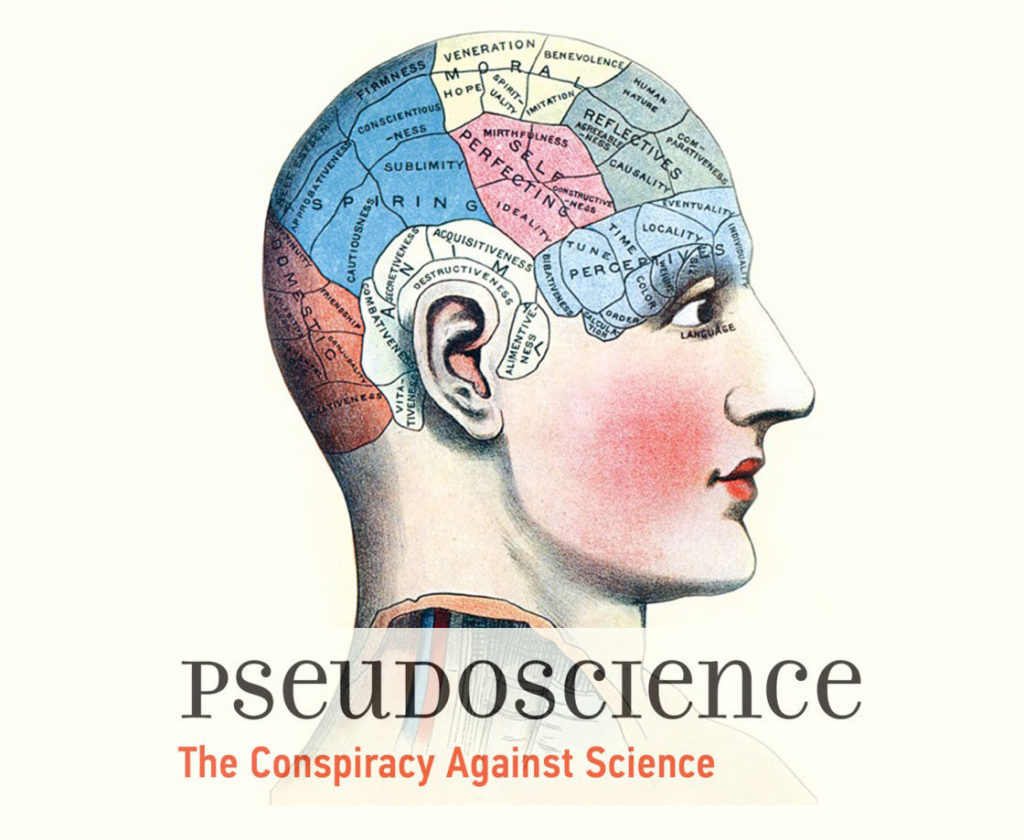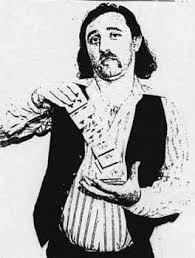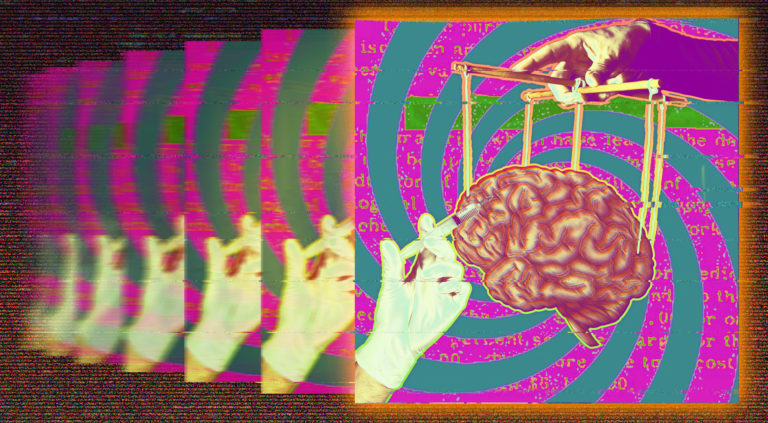Neuro-Linguistic Programming
What is Neuro-Linguistic Programming (NLP)
According to the Oxford Dictionary NLP is a model of interpersonal communication chiefly concerned with the relationship between successful patterns of behaviour and the subjective experiences (esp. patterns of thought) underlying them” and “a system of alternative therapy based on this which seeks to educate people in self-awareness and effective communication, and to change their patterns of mental and emotional behavior.
NLP began in the early 1970s when an associate professor of lingistics at UC Santa Cruz, John Grinder teamed up with Richard Bandler, a computer tech student. They both were curious about how and why some people were more successful in what they did than others. Specifically, they questioned why certain therapists were more successful than the rest. To figure it out, Bandler took and recorded appointments with several well known therapists in the industry – Virginia Satir who was a very well known and respected family therapist, Milton Erickson, who specialized in medical hypnosis and family therapy working with the unconscious mind and Fritz Peril, a psycological hypnotist (but I must say, some research says they only actually interacted with one of them – Victoria Satir). Grinder then listened to these sessions and studied the patterns in their language and how those patterns directly related to their patients behavior. it’s with these patterns that they created some of their techniques – in fact, this whole thing that they did to obtain this information is actually one of their techniques, called modeling.

How it (Supposedly) Works
NLP functions on two presuppositions:
- We do not know the actual reality. We behave on perspectives, and our perceptions of reality. Our limitations are not based on the reality, but rather our “neuro-linguistic” maps of reality – in NLP a map is essentially each individuals perception of the world.
- The body, the society and the universe are inseparable. The processes that take place within them and among them are systemic. They interact and influence each other. They are fundamentally based on principles that seek optimal states of balance.
Proposed Benefits
- Eliminating negative energy from self. NLP helps individuals bring down their stress levels, resolve anxiety and incorporate positive feelings within themselves.
- NLP helps individuals resolve fears and phobias QUICKLY using dissociation. Conventional methods usually take years to cure phobia.
Improved soft skills and greater confidence and command in activities such as public speaking. - Peace within self and with others. NLP has been credited to resolve various conflicts.
- Improved life style in general that involves changing behaviors and habits that can potentially harm one’s mind and health.
- Confidence in one’s own abilities that will help individuals develop managerial and leadership skills.
- Knowledge of techniques that will help reduce or release stress levels.
- The ability to listen effectively and grasp essentials.
- Skills that are required to be able to work with a team at work or otherwise. —NLP enables individuals to build teams, maintain and run teams, and manage teams.
- Creating long term relationships with peer groups, colleagues, family and other members of the society.
- Achieving various targets and goals in life. NLP programs will help individuals to work smartly and effectively. These programs will also help individuals set their objectives and goals (both long and short term), meet their objectives and performance goals.
- NLP programs will enable individuals in identifying people’s natural learning styles.
"...the most important synthesis of knowledge about human communication to emerge since the explosion of humanistic psychology in the '60s."
Science Digest

Tips from an NLP Trainer

Take a Hike
Want to change someone’s mind? Go for a walk with them!
When you’re walking beside somebody, you connect with them differently. The reason being, in order to walk beside somebody you need to be in unified rhythm. When you’re in rhythm, even your breathing begins to synch up.
Linda provides the example, “If you’re in a heated conversation and you want to disagree, you have to stop. There’s no logical reason you couldn’t keep walking and have a disagreement, but people never ever do.”
Musical Chairs
Solving a difficult personal problem with chairs:
First, sit in one chair, and think suuuper hard about a problem that you’re struggling with. As you do this, pay close attention to your internal and external focus. What do you notice about the visuals, sounds and smells of the room around you? How has your posture changed, and what does your body feel like? Take a moment to write down your observations.
Next, sit in a different chair, and think about a situation you’ve had which is the exact opposite of this experience. Don’t second guess yourself. Stick with the first thing that comes to your mind. Now, immerse yourself completely in this memory and make the same observations again. Form a vivid re-enaction in your mind and try to understand and identify every aspect of the experience: how you feel, your posture, how you’re acting and the way that your senses interact with the world around you. Make notes if you can.
Lastly, move back to the first place you were sitting but this time keep the second experience strong in your mind. Re-read the notes you had made about the more favourable experience. Change the way that you’re sitting so that you fully embody this state of mind.
You may come to an immediate solution to your original problem. If you haven’t, keep switching back and forth between the two chairs until you can effectively apply your second mental state to the situation of your first problem.
(This really reminds me of Lacy Phillips’ program, To Be Magnetic, in which you do a deep imagining and replace your actual memories with how you with things would’ve gone, so much so that you trick your brain into remembering it that way.)
Copycat
Mirroring someone’s verbal and non-verbal behaviour can trick someone into feeling closer/trusting of you.
Match someone’s speaking style, tone of voice and language. If they are relaxed follow suit. If they seem formal, do the same thing. If you can, follow their breathing pattern. Look them square in the eyes, and occasionally repeat what they say back to them. This is especially powerful if you can match their body language – which I feel like I do subconciously.
First, think about the state of mind or perspective you wish to create in your subject. Then, mirror your subject’s body language until you’ve established a non-verbal connection with them. Remember not to be too obvious about this—if they notice what you’re doing, the connection will be dropped. Lastly—once the connection has been established—emit the state of mind or perspective you wish to create in them and persist until they meet you in this condition.
Switch it Up
Argument moving in circles? Try switching seats.
If you find yourself in an argumentative stalemate, simply switch seats with the other person. By sitting in the other person’s seat, you will find it easier to see from their point of view. The simplicity of this technique makes it sounds slightly preposterous. However, if you give this method a try you may find yourself surprised at the difference that your physical state can have on your mental processes.

NLP & Pickup Artists
Paul Mckenna, Illusionist/NLP MasterSome people teach NLP in a way that makes it sound highly manipulative and coercive. You know, 'I will give you power over others.' And the people who end up going to those are people with very small penises, frankly. People who think, 'Oh my God! I'm not enough! I'm so out of control! Maybe if I learned how to have power over other, I'll be a better person!' So, you see, criticising NLP is like criticising a hammer.

NLP is a useful tool for Pickup Artists
Ross Jeffries, who wrote the book “How to Get The Women You Desire Into Bed” just so happens to be an NLP MASTER.
Neal Strauss, author of “The Game; Penetrating the Secret Society of Pickup Artists” – another big guy in the pick up artist community ALSO happens to be an NLP MASTER (On Yeah no Yeah there was a whole episode about this guy and book but also this guy named Mystery aka Erik von Markovik who was an illusionist turned pick up artist and eventually had a TV show – I didn’t see NLP stuff on him but he prob was using similar techniques.)
Derren Brown's "The Heist"
Inspired in part by “a vague distaste for the cult of selfishness apotheosised through self-help seminars” Derren Brown, English mentalist, illusionist, and author filmed a television special in 2008. In the special, Brown pretends to be a motivational speaker holding a seminar and documentary to see if he can persuade 4/13 people who had responded to an ad steal £100,000 in what they believe is a genuine “armed robbery” of a bank’s security guard – but they’re actually using a toy gun.
These people were chosen specifically because they seemed to be “open responsive types” who would respond well to his techniques, had no criminal record, were equally middle class and deemed psychologically fit. and businesswomen to steal £100,000 in what they believe is a genuine “armed robbery” of a bank’s security guard – but they’re actually using a toy gun.
The special was filmed over two weeks, during which Brown tells the viewer he has used various psychological tools, including NLP methods – including conditioning, anchoring and suggestion, to get the group into a mental state in which they would willingly try to rob a security guard, without ever directly being told to do so.
He used anchoring to create an emotional state of invulnerability, euphoria and aggression, that was tied to various stimuli – the colour green, the song “Can You Feel It” by The Jackson 5, and the sight of a security guard uniform. All of the stimuli were then presented to the participants when it came time to perform “the heist”. He also used suggestive language like describing the participants as “thought criminals”, titling a slide in the presentation “Things to take away”, and using the acronym “K.A.S.H.” in another slide.
After the seminar, the participants were also asked to perform another small crime – stealing candy from a convenience store across the street, saying it would be a way for them to reclaim their childlike freedoms. all but 2 participants went ahead with the theft and afterward 4 contestants were eliminated from Brown’s plans.
One week later, he tested the 9 remaining subjects on their responsiveness to authority by having them participate in an experiment modeled after the well-known Milgram Experiment, created by Stanley Milgram in 1963 to look at how people can do hella fucked up things because they’re following orders. He hired an actor to pretend to be another participant and then tricks his subjects into choosing to be “teachers” and they all observe a learner.
Basically the teacher is supposed to shock the learner anywhere from 15v – 45v anytime they answer a question wrong. every wrong answer = higher voltage. luckily the screaming and agony – begging to stop – was prerecorded. the whole point is to see if the “teachers” will continue shocking the learner all the way to a lethal voltage just because the scientist is telling them to.
After the experiment, each participant is told the true nature of the test, and that it was filmed for the show.
The results of Brown’s experiment were almost identical to those of the original – over 50% of participants continued up to 450V.
After the end of this experiment, Brown chooses the four participants who will take part in the heist, based on their behavior in the experiment and in previous tests.
On the morning of “the heist”, the four subjects are individually told to travel into London for a final motivational session. They are each picked up in a car, and while in the car, each one individually gets a phone call from Brown, who delivers the following message, full of suggestion phrases: “Make that decision to steal yourself. And grab that opportunity to make all this work really pay off. It’s just about standing in the way of security and life and making it do what you want it to do. You’re the one with the weapon of absolute unquestioning power.” then they’re dropped off and told to walk up the street to the meeting place. They had been told to bring their toy guns with them. (The whole area had actually been cordoned off to the public and was supervised by the police.)
All of his triggers appeared around the site – a half-painted green fence can be seen, as well as a large advert for tights (featuring the rubbing of a leg, to try and trigger the extremely motivated state, that Derren had taught them to induced by leg rubbing) with the slogan “Do it…go on – steal yourself”. As each subject walks up the street, a car drives past blaring out the loud trigger music (“Can You Feel It”). They approach a parked green security van and the security guard (an actor) is given the cue to cross the road from the Bank of England holding two boxes containing £50,000 each. The subjects react as follows:
Victoria, press officer / P.A. – performs a hold-up
Phil M, security operations manager – “Excuse me sir, er, sorry to interrupt proceedings, but this is a hold-up, get down on the floor, get down on the floor!”
Danny, IT consultant – performs a hold-up.
Ally, business development manager – walks past the security van – repeatedly looking at the guard.
A large group of helpers and camera crew, hidden around various street corners, rushes in to intercept each subject after their respective experience, regardless of whether a hold-up occurred or not.
After filming, all four subjects were de-programmed of any temporary criminal inclinations, spending time with both Brown and an independent psychologist. The three participants who performed a hold-up are shown stating positive things about their experience, although it is unclear whether these were taped before or after the heist itself. To end the show, Ally says: “Stealing sweets is one thing, but stealing boxes of money from the Bank of England is a completely different kettle of fish.”
Brown stated of the experience, “It was shocking, actually, how easy it was.
IS THIS NLP?? I think so…but…he denies it.
Several authors have claimed that Brown uses neuro-linguistic programming (NLP) in his act which “consists of a range of magical ‘tricks’, misdirection and, most intriguing, setting up audiences to provide the response that he wishes them to provide by using subtle subliminal cues in his conversation with them.” in response to the accusation that he unfairly claims to be using NLP whenever he performs, Brown writes “The truth is I have never mentioned it outside of my book”. Brown does have an off-stage curiosity about the system, and discusses it in the larger context of hypnotism and suggestion.
In his book Tricks of the Mind, Brown mentions that he attended an NLP course with Richard Bandler, co-creator of NLP and mentor of Paul McKenna. He also describes the NLP concept of eye accessing cues as a technique of “limited use” in his book Pure Effect. The language patterns which he uses to suggest behaviours are very similar in style to those used by Richard Bandler and by the hypnotist from whom Bandler learnt his skill, Milton H. Erickson. Brown also mentions in Tricks of the Mind that NLP students were given a certificate after a four-day course, certifying them to practice NLP as a therapist. A year after Brown attended the class, he received a number of letters saying that he would receive another certificate, not for passing a test (as he discontinued practising NLP following the course), but for keeping in touch. After ignoring their request, he later received the new certificate for NLP in his mailbox, unsolicited!
Richard Bandler, creator of NLP is basically a psycho!

On His Childhood
“From being alone most of the time. I had to be self-motivated. My mother was always out working, and my father was violent and dangerous.” He pauses. “Well, my first father was gone by the time I was five, and he was very violent. My mother later married a guy who was a drunk and a prize fighter in the navy. He was very violent – broke a lot of my bones. But in the end I won.”
“How?” I ask, expecting him to say something like, “Look at me now, I’m getting driven around in a Bentley.”
But instead he says, “I electrocuted him.”
“Really?” I say.
“I didn’t kill him,” he says, “but I could have.”
“How did you electrocute him?” I ask.
“I waited until it was raining,” he says. “I got a wire-mesh doormat. I stripped a lamp cord, put it underneath the doormat, put the other end in the keyhole and put my hand on the switch. When the key went in, I clicked the switch. There was a loud scream. He went over the railing. Six months in hospital.”
“How old were you?” I ask.
“Ten,” he says.
-From an article in The Guardian
In the Beginning...
Bandler was married in 1978 and divorced 2 years later. His ex wife stated in both court documents and police interviews that Bandler had choked her, laughing and warned that he could kill her. According to allegations in police reports and court documents, he attacked her male friends and threatened to have several of them killed. “All I need to do is dial [seven] digits and with my connections with the Mafia, I could have you all wiped out, without even batting an eye.”
YIKES.
Around this same time, he and Grinder parted ways – shortly after his NLP business was bankrupt.
That same year he met James Marino an older coke dealer. He got deep into drugs and alcohol and put on a ton of weight.
In 1984 at a conference, he brought a small pistol and ended up aiming it at a psychiatrist who had volunteered to come on stage. Bandler was wanting to demonstrate one of his theories, that people could change with the right stimulus. evidently before he pulled the gun, the psychiatrist had said the only stimulus that would have the capability of changing him would be a gun- soooo super weird that he had a gun in his pocket…other audience members had been attending NLP lectures etc for a long time, so they laughed and went along with Bandler’s antics. Still holding his ground, the psychaitrist said, the gun would only work if he knew Bandler was willing to use it.
Richard Bandler to audience volunteerI've got news for you. You've got no idea how nuts I am. How many people have one [gun]? In their pocket? Waiting for you? And you're going to tell me that I won't do it? I don't have to kill you, I just have to wound you... I've done weirder things to clients."
Needless to say, the psychiatrist was SHOOK and eventually agreed with Bandler, who replied, “Otherwise I would have shot you by now.” the audience laughed.
This story was shared to police who were obtaining evidence and character on Bandler. When talking to police, the psychiatrist said, in retrospect, he thought Bandler had helped him change.
Now the REAL Trouble Starts
In 1986, Bandler moved into a house built by James Marino. He lived just a few hundred meters from Marino’s girlfriend, Corine Christensen lived and would soon die.
Things had fallen apart for Marino and Corine but he still attended a halloween party with her, where he was brutally attacked. Corine cared for him for several days after the attack but he somehow was convinced that she arranged the attack. When Bandler found out about this, he lost his shit and decided to go to Corine’s house and try to get information from her. He recorded their conversation.
“I need to ask you a simple question,” he said “Why is my friend hurt?”
When she evaded his questions, he began to shout and curse, pressing for information. No more than eight hours before her death, he gave an ultimatum:
“I’ll give you two more questions,” he said, “and then I’ll blow your brains out.”
-From an article in Mother Jones
Eight hours later, Corine was shot in the head at her home; 12 hours after that, Bandler was arrested for the murder.
People in his immediate circle thought the accusation was nuts. He was so well known – worked with many elite, wrote 11 books and sold half a million copies – he even worked for the CIA.
All of the evidence pointed to Bandler. He had her blood on his shirt – there was the recording – Marino told the police it was him in a crazy long winded story that kept changing a bit, but police found evidence that matched his story.
The trial lasted for 3 months and basically relied on if the jury could believe Marino’s story enough to convict. Bandler had a ton of supporters come and speak on his behalf and he ended up acquitted. 2 jury members cried after the trial because they knew they let a murderer go.
Maybe NLP helped him win the case.
The world will never know.















